The words that amplify animosity over Kashmir dispute
Studies have proven that positive or negative words subconsciously shape the opinion of people, mould their lifestyle
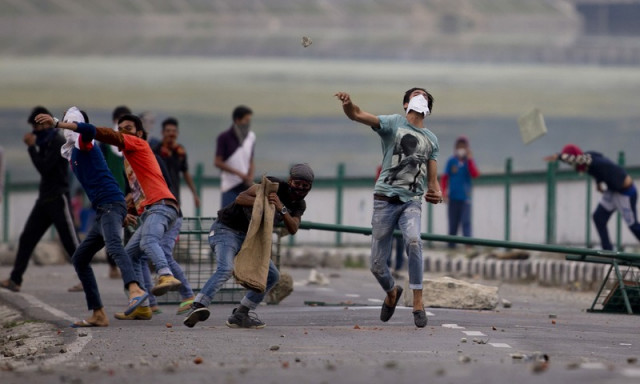
PHOTO: AP
UN, world powers asked to take notice of Indian atrocities in Kashmir
Wani was the most-wanted person in Kashmir for over a year and carried a bounty of INR1 million on his head though he was not directly involved in any rebel attack and had never faced an encounter with security forces. He was popular for his bold appearance on social media by sharing images and videos of armed members of his rebel group. He made an appearance on social media with audio-visual statements asking Kashmiri youth to join the armed rebellion against Indian rule in Indian-administered parts of Jammu and Kashmir. His bold approach was first of its kind in nearly three-decades of insurgency in Kashmir that started in late 1980s.
Words, their meanings and their impact on the world have been the subjects of research and many studies have proven that positive or negative words subconsciously shape the opinion of people and mould their lifestyle. For instance, Susan Smalley, who has been a professor at the Department of Psychiatry and Behavioural Science, University of California, in an article on the Huffington Post, says, “Verbal insults, verbal abuse, and the power of words to affect your emotions and actions are well demonstrated in science.” Citing an example, she adds, “Scientists have found that just hearing sentences about elderly people led research subjects to walk more slowly. In other research, individuals who read words of 'loving kindness' showed increases in self-compassion, improved mood, and reduced anxiety.”
Amid controversies over Burhan’s role and character, the legitimacy of his encounter with security forces, killing of stone-pelting civilians, lethal damage caused by non-lethal weapons, and political and diplomatic brawls that followed, the only undisputed aspect of his killing is the assembly of at least 100,000 civilian mourners in his hometown, Tral, in South Kashmir on July 9. The number was, in fact, beyond estimation as funeral prayers for Wani were reportedly held around 40 times to accommodate all his sympathisers in the ground estimated to be around 4.5-acres.
Kashmir can never become part of Pakistan: Sushma
However, everything other than the enormous crowd is and has since long been disputed, adding fuel to nearly sixty-decades-long unrest in Kashmir. The most disputed word surrounding Kashmir is “disputed” itself. The Kashmir conflict was in its latent stage when erstwhile India was being divided on paper into two countries – India and Pakistan. The territorial partition could have made the subcontinent politically and socially stable, had the fate of the princely state of Jammu and Kashmir been decided in clear terms, and according to the aspirations of its people.
The then monarch, Maharaja Hari Singh, acceded to India when the country agreed to fight the tribal invasion. Since then, the Indian government has been calling Jammu and Kashmir its “integral part” and has taken a stand against accepting the disputed nature of the state. But unrest still continues in the region, and people demand their right to self-determination on the grounds that a monarch was not an elected representative and did not represent the sentiments of the majority of people, and hence was not entitled to make a political decision of accession on their behalf. But despite first Indian Prime Minister Jawaharlal Nehru’s promise of giving the people of Kashmir their right to self-determination, the Indian government continues to refuse the disputed nature of the state.
Separatist leaders of Kashmir continue to use the term “dispute”. They say it is not a bilateral dispute between India and Pakistan, but that people of Jammu and Kashmir are an equal party to it. One of the conditions that senior separatist leader Syed Ali Geelani, who is in his eighties, has put for dialogue is that India accepts Kashmir as a dispute.
Back on Facebook: Hamza Ali Abbasi calls Modi government ‘Zionist terrorist’
India calls undivided Jammu and Kashmir its “integral part” while Pakistan calls it its “jugular vein” – which means both countries claim they cannot survive without the region. Although Pakistan accepts Kashmir as a disputed territory, India does not, making it impossible to initiate a dialogue between the two nations.
Armed insurgency kicked off in Kashmir valley in late 80s, saw a declining trend around 10 years later, and then a reviving trend in the last five to seven years, with young adults, many of whom are well educated, joining the armed insurgency. Those who join the movement are widely called “militants” or “rebels” – literally those who favour violent methods in support of a political or social cause, in this case a freedom struggle. Their aim, according to them, is to ‘free Kashmir’ from Indian rule by fighting government-sponsored armed forces in the state.
However, controversy surrounds the armed insurgency. For a large number of people in Kashmir, including separatist leaders, the militants are “mujahideen”, the Arabic word especially referred to those who fight for the sake of Islam and against non-Muslims. People of Kashmir also call them “freedom fighters” while some foreign media outlets just call them “separatists”. Pakistan Prime Minister Nawaz Sharif on July 15 called Burhan a ‘martyr of independence movement’, according to Radio Pakistan. A day before this, Pakistan’s Foreign Office spokesperson, Nafees Zakaria, said Burhan was a ‘freedom fighter’. The separatist leaders of Kashmir use similar terminology while mainstream pro-India political parties continue to call them militants.
Only Kashmiris can decide their future: Sartaj Aziz
However, the same group of rebels are referred to as “terrorists” by many influential politicians and media outlets in India, while few others in the same lot recognise them as “militants”.
According to the Oxford Dictionary, the word terrorist means, “A person who uses unlawful violence and intimidation, especially against civilians, in the pursuit of political aims.” If one goes by this definition and the global-stereotyping of Muslims as terrorists, the insurgency in Kashmir does not refer to freedom fighting, but an act of terrorising unarmed civilians at large.
Popular Islamic preacher Dr Zakir Naik, who is in controversy over allegations of promoting terrorism, says that terrorism is a relative term. In a recorded public address, he says, before India achieved independence from British rule, some freedom fighters of India who did not subscribe to non-violence were labelled terrorists by the British government, mostly while referring to Bhagat Singh, who is called a ‘shaheed’ (martyr) in India for fighting against the colonial British rule. Naik says the same person was a terrorist for one section of society and freedom fighter for the other. It is necessary to know all sides of the story to judge a person’s role, he says.
As mentioned earlier, Modi said Burhan was a “terrorist”. Similarly, on July 18, Indian Home Minister Rajnath Singh said in Parliament that Burhan was a “Pakistan-sponsored terrorist” – in an attempt to link the insurgency with hostile Indo-Pak relations. This is in accordance with what many Indian leaders, including Modi, have been calling the terror and militant attacks on its soil – the “proxy war” by Pakistan.
Not long before Kashmir becomes part of Pakistan: Nawaz
The terms used for Kashmir’s insurgency movement shapes the opinion of people in and outside Kashmir differently. Common people in India regularly come across the word “terrorist” in relation with the state of Jammu and Kashmir. It’s written in most news headlines, including those on the most circulated English daily, The Times of India. The Hindi language media – both print and electronic - use its Hindi translation ‘atankwadi’. Hence, for a common Indian, who does not know the story behind the freedom movement of Kashmir and the history of Kashmir’s controversial accession to India, anti-India rebels in Kashmir are nothing but terrorists.
The same is reinforced by the allegations made on Muslims of Kashmir over exodus of Kashmiri Hindus, popularly known as Kashmiri Pandits, in early 90s due to outbreak of armed rebellion. Although conspiracy theories surround the migration, which hold the then Governor Jagmohan responsible for the community’s migration, some critics continue to blame the rebels for forcing Pandits to evacuate. Although thousands of Pandit families still live in Kashmir in harmony with their Muslim neighbours, many of those who migrated call their exodus “ethnic cleansing”. The term is apparently used to link the migration to communal hatred, making common people in India believe Muslims forced Hindus to leave the Valley based on religious grounds, which is totally against the centuries-old communal harmony in Kashmir.
Moreover, according to official statistics cited by newspaper Kashmir Times, armed rebels have killed 16,725 civilians in Kashmir, while a Jammu and Kashmir government report says rebels have killed 219 members of the Pandit community. However, Pandit activists term the killing of their members “genocide” – literally, the deliberate killing of a large group of people, especially those of a particular nation or ethnic group. This once again takes an unfair narrative to the common people in India.
The Pandits have been blaming the rebels, including rebel turned “peaceful” separatist Muhammad Yasin Malik, for their exodus. However, Malik has repeatedly spoken in favour of their dignified return. For instance, on July 6, 2014, Malik said, “It is the wish and desire of every Kashmiri to see our Pandit brothers, sisters, youth and children back in their homes and localities and no ruler or nation can stop them from returning back or impose his will and decision on them in this regard.”
The war of words also continues over names of a few places in Kashmir, like Anantnag town of South Kashmir is called Islamabad by Muslims.
India and Pakistan have fought three wars since the subcontinent split into two countries after British colonialism ended in 1947. Kashmir dispute is considered the foremost reason for dangerous resentment between the two countries, both of which have control over only parts of Jammu and Kashmir, while India claims to have right over the entire territory.
New messages
In a similar manner, the opinions are formed by the choice of words used for parts of divided Jammu and Kashmir, in control of either India or Pakistan. The most neutral ones are Indian-administered Kashmir and Pakistan-administered Kashmir, and are mostly used by international media outlets, including the reputed New York Times, British Broadcasting Corporation (BBC) and Cable News Network (CNN).
India lambasts Pakistan as tensions flare over Kashmir
However, governments and media of the two nuclear powers have been terming the two sides of Kashmir “occupied” by either India or Pakistan. This makes the common people in India believe that Pakistan has forcibly occupied India’s land and the common people in Pakistan believe that India has forcibly occupied its land. Most media outlets in the two countries narrate stories in similar conflicting manner.
Separatist leadership of Kashmir has since long been accusing the government of India and the government of Jammu and Kashmir –which they call “puppets” of the former – of waging a war against the people of Kashmir, who, according to the separatists, are peace loving people. However, the separatists are themselves victims of words – which again shape popular opinion in India. They call themselves “pro-freedom” leaders, while they are popularly called separatists. Another term used for them is “resistance”’ leaders – literally those who resist the ‘oppression’. However, the same group of leaders are termed “traitors” by many in India, including a section of the media. They call him a traitor because he was part of mainstream politics until 1987 and then joined the separatist movement. But they perhaps do not consider what made him turn. It was the alleged rigging of elections, which also made strong grounds for the onset of armed insurgency in Kashmir. Indian media also disapprove of the separatist leaders for sympathising with the armed rebels, who, remember, are considered terrorists by India.
Separatists have for long been demanding a resolution of Kashmir dispute in the shape of right to self-determination – letting people decide their future. This is in accord with the resolution passed by the United Nations Security Council around eight months after the subcontinent split into two countries, leaving Jammu and Kashmir in a paradox. The world body stated, “Both India and Pakistan desire that the question of the accession of Jammu and Kashmir to India or Pakistan should be decided through the democratic method of a free and impartial plebiscite.” A plebiscite, also referred to as referendum, would allow every citizen of erstwhile Jammu and Kashmir to vote for either India or Pakistan, and probably an option for an independent state may be given.
Although a referendum has not been possible in reality yet, both India and separatist leaders of Kashmir have related the term to turnout in elections and participation in the funeral of slain militants, respectively. Large turnout in assembly or parliamentary elections in Jammu and Kashmir is often termed by media as a referendum in favour of Indian rule in the state and against separatism. However, the separatists term the large turnout of people in funerals of slain rebels – including that of Wani – as a referendum against the Indian rule in Kashmir and in favour of separatism. For instance, Geelani described the presence of a “sea of people” in Wani’s funeral as a “clear referendum”.
QUIZ: How well do you know Kashmir?
This reminds me of a separatist-called protest march to Eidgah in downtown Srinagar during anti-government protests in August 2008, when people, estimated to be around a million in number, assembled at the venue and loudly responded to slogans in favour of ‘azadi’ (freedom). The uprising was triggered by Amarnath Land row. However, only three months later nearly 60% registered voters in Kashmir valley participated in the assembly elections despite the separatists appealing for poll boycott. The fact that people in Kashmir have turned out in large numbers in both anti-India protests and elections, one cannot refer to any of them as a clear referendum.
The two large mainstream political parties in the state – veteran National Conference (NC) and relatively naive Peoples Democratic Party (PDP) – do not pledge to referendum as a resolution. They want Jammu and Kashmir to be a self-governing state as part of the Indian union. Although they bat for similar scenarios, they term it differently. NC pitches for total restoration of “autonomy” in Jammu and Kashmir that is guaranteed by Article 370 of the Indian Constitution. This special status to the state – which also allows it to have its own flag and constitution – is based on the three matters of accession of the state with India, which include defence, foreign affairs and communication. However, in decades of unrest the original essence of autonomy was lost, which include changing of titles of prime minister and president with chief minister and governor. The ruling PDP bats for minutely different “self-rule” framework with economic integration of India and Pakistan held parts of Jammu and Kashmir as its focus. Although the party proposes self-rule in the state, it took a historic decision in 2014 by forming an alliance with ideological opponent Bharatiya Janata Party, one of whose objectives is to abrogate the special status of Jammu and Kashmir.
Islamabad rejects New Delhi’s claim on Kashmir
In a nutshell, the decades long Kashmir dispute seems to be nowhere near a resolution with unrest on ground and increasing differences between India and Pakistan, India and Jammu and Kashmir, Jammu region and Kashmir region, mainstream and separatist groups, two big mainstream parties, and most importantly, the increasing hostility between the common people of Kashmir and those in the rest of India. Words play a very important role in creating alienation between them and agreeing on a common terminology can form a strong base for any possible resolution of the Kashmir dispute.
Vijdan Mohammad Kawoosa is a Kashmir-based journalist and founder/editor of news website jandknow.com

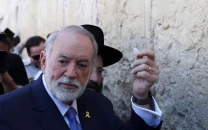
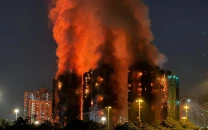
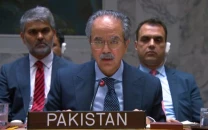
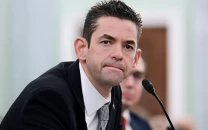
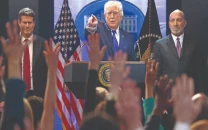













COMMENTS
Comments are moderated and generally will be posted if they are on-topic and not abusive.
For more information, please see our Comments FAQ